If you're travelling to Cambodia in South East Asia, you may have some questions about money.
What currency do they use?
How can I be fair with locals, but happily barter when buying things?
Do I need to tip?
In which ways, can I make the best of my money?
There are many things to love about travelling in Asia. Usually, the weather is warm, the people are too and the food is delicious. And for most travellers - things are cheap. As citizens of the world, it's important though not to get carried away with the 'cheapness' of everything and to keep in mind a sense of generosity with the local people you meet. What might not be a lot of money to you, might be everything to someone else, so don't get too caught up about the odd dollar here or there! At the same time, we all have travel budgets and we can't be giving out money on every street corner, otherwise our trip would end up financially disastrous. It's about having balance, right?
To help you be street smart about your cash, get your head around the currency and make the most of your travelling budget, here are 10 money tips for Cambodia.
10 Money Tips For Cambodia
1. Take US dollars cash
Hit the ground running with US cash, as this is the main currency used, rather than the local ‘riel.’
Although the riel is still widely used among locals, most transactions as a tourist or traveller with hotels, restaurants and traders will occur in US dollars.
I recommend taking about US$100 in cash on your person as a starting point. Australians will need US$30 for a visa on arrival (check the Cambodian embassy in your country if a visa for your travel is required and associated cost). The remainder US$70 could be usefully broken down as follows; 1 x US$20, 2 x US$10, 4 x US$5, 10 x US$1.
Small notes come in very useful for tuk tuks, cheap purchases and tipping - you don't want to be caught out with a US$50 bill trying to pay for something small.
You can top up your cash after arrival by withdrawing US dollars from an ATM. I recommend using Canadia Bank in the bigger cities. In 2014: This bank didn’t charge me (and other foreigners who I met) any fees for withdrawals. Other ATM's cost about US$3-5 for a withdrawal (check your local bank for their fees and Canadia Bank for up to date information).
Tip: Smaller notes are really useful for tipping and small purchases. Be mindful when accepting change to make sure the notes are in good order. If your notes are ripped, dirty or not in good form, traders may not accept them.
2. Tip
Yes, tipping is a good idea. Generally it's customary to tip whilst travelling in Cambodia and maybe this has something to do with the country's association with the US currency.
Some restaurants and hotels include a surcharge in their bill for 'service', however since Cambodians make little to nothing for a hard day's work, I always like to offer a little extra in cash for a job well done.
At hotels, it made more sense to leave one tip in US at the end of the stay for all of the staff, rather than tipping every single time there was an interaction with hotel staff (you quickly run through your notes). However if I got exceptional service I would tip on an individual basis when I thought it was warranted.
When you pay for things in US, you will often get change in a combination of Riel and US. Because there are no US coins in circulation, you soon seem to end up collecting a massive wad of notes in the two currencies and your wallet soon seems really confusing. I sifted the Riel into a different section of my wallet and used this to tip a little extra here or there to locals, when I felt that tipping in US dollars might be a little overkill for a limited interaction, but still a way of giving back.
It is kind to show your appreciation. And in Cambodia, this turns out to be quite often!
Tip: Use Riel for smaller tips or items. Tip specific people for a job really well done. Tip at the end of your stay at your hotels for all of the staff, rather than tipping at each interaction.
3. Negotiate your TUK TUK, before departure so you know how much to pay
When you get asked the question:
Tuk tuk?
...It’s always helpful to know how far away you are from where you want to go. If you are disorientated and don’t know the distance, you might end up paying more than is the normal rate. The general rule for payment is about US$1 per km, so you need to know how far it is, to know how much it is. It helps to have a map, some local geographical knowledge or an iphone map app, if you have a local SIM card. Always ask at the hotel or other locals what they recommend as a reasonable price to pay to get to a certain location and how far away it is. This way you'll know the going commercial rate, from which you can base your negotiations on, and even perhaps source a cheaper price.
Tip: At hostels and hostels if they call a tuk tuk for you, or use one of those parked outside, you are usually assured of a reliable driver. If you want to take more of a chance and possibly save some money, you can always walk down the road a little. You may be able to source another cheaper driver.
4. Eat Local
I'm not suggesting you eat food from street stalls every night, but the more local you go, the cheaper your food will be. I've eaten snails, frog, crocodile and kangaroo, but I draw the line with local delicacies, such as insects in South East Asia and Guinea Pig in Peru. Price is not the only advantage of eating locally though. It's often safer and more enjoyable to eat in locally run restaurants, rather than dining at generic hotels which offer 'western-style' food. Eating the local common dishes, generally means that your chef is more familiar with how to prepare the food as opposed to western food, which can sometimes get lost in translation. One of the most enjoyable aspects of visiting a country is to indulge in the cuisine; it's usually fresher, more authentic and you'll save money.
Tip: Check out the Friends chain of restaurants in Phnom Penh and Siem Reap. They offer delicious, affordable, authentic meals, whilst providing disadvantaged youth with jobs.
4. Replenish the mini-bar
Cambodia is an inexpensive destination compared to Europe, the US or even Australia and so the costs of consuming from the mini-bar are not exorbitant, like they are in many other countries.
Even so, if you find yourself dipping into the mini-bar supply, but you want to save a few dollars, duck out early the next morning and replenish the stock from a local trader. It’s generally easy to find vendors who sell water and beer. So once you pop the contents back in the fridge before house-keeping, you’ll be paying more like US$1 for a beer locally as opposed to US$5 from the mini bar.
Tip: If you're clever enough, none will be the wiser.
5. Use a Travel Money Card and have back up money resources
I always commence travel with a little bit of local cash and a travel money card which I can draw cash from at ATM's. Since you load cash onto your travel money card, and it is not linked to any of your everyday banking or credit card accounts, there is less likelihood of fraud or identity theft if your card is stolen. If it is, unfortunately, hacked in some way at least there will be limited funds in the account. Also, as you specify the amount you put into the travel card, it's a good way of setting a holiday spending budget which you will more likely stick to you than you would if you were using a card that had access to more than your budgeted money. Plus you can be assured of a specific currency exchange at the time of loading, rather than have it fluctuate while you're away. As well as local cash and a travel card, I also take one or two back up debit/credit cards, which I keep separate (in the hotel safe or in a different bag to my day-to-day wallet) in case of theft or a cashflow emergency.
Tip: Don’t carry everything all together. Keep your cash and cards separated in different areas of your luggage, wallet, hotel safe and on person.
7. Buy at local markets
Although it’s tempting and hard to resist when hawkers try and sell you souvenirs at a tourist site such as Angkor Wat, you will pay a premium if you buy in such a location. OK, you might feel in the moment or be pressed for time, so it might appear opportune to buy goods whilst there. Just keep in mind there will be a significant tourist mark up on these goods if you buy in the 'hot spots.'
Tip: Make a trip to the local market where you’ll find pretty much everything you would at these tourists sites for about a third of the price.
8. Shop around for transfers
It’s worth shopping around when agreeing to a price for things like airport transfers. There will be a significant cost difference depending on where you are staying. For example, in Sihanoukville, an airport transfer in a mini bus from the 4 star Sokha hotel was quoted as US$43 PER PERSON where as another hotel the Coolabah Hotel in the centre quoted US$18 for TWO PEOPLE. In this case I got a $1 tuk tuk into the centre and took the cheaper transfer and saved over US$60 on a transfer for two!
Tip: A little strategy and research can save you a lot of money.
9. Barter
In Asia, there is no such thing as a fixed price, especially at markets.
In fact, mostly everything is negotiable. Since stalls in markets often sell similar goods especially souvenirs, it's wise to look around, do your research and ask for the price of items to see where you might find the best value. There's nothing worse than rushing in and buying something impulsively, only to go to the next stall and find the item there sells for a third of the price. Knowing an item's value, will help you with your negotiating skills and your confidence to barter. Broadly speaking, I offer half of the asking price. Hopefully you and the trader will meet somewhere in the middle and come up with an agreeable arrangement. If you walk away and they don’t call you back, you’ll know that your price is too low.
Tip: Use the experience as a positive exchange and come to a friendly solution. Play the game but don't be too serious over what is, to you, probably a small amount of money.
10. Use Local Services - Enjoy and interact!
Get your toe and fingernails painted at the beach. Get your lip hair threaded. It will cost you a fraction of what it would do at home and at the same time you will enjoy the company and the interaction with local people. Not to mention, putting money into their pockets. Have fun with the beautiful Cambodian people as you go about your financial transactions - pay fair, show them care and respect and thank them. People will be so grateful to you, as by using local services you are helping their cash flow, economy and livelihoods.
Tip: By interacting you also meet new friends and learn about the country and its culture.

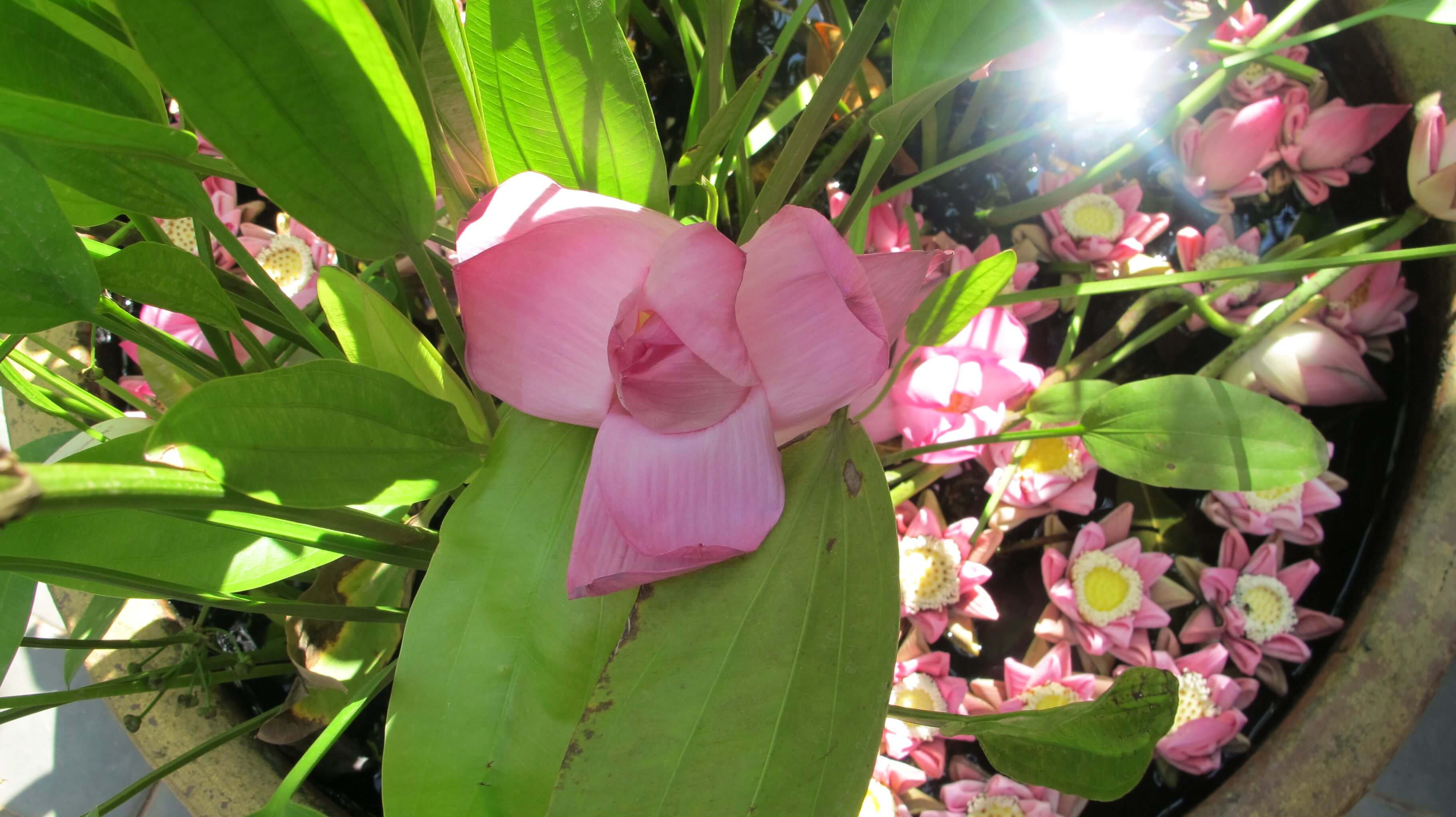
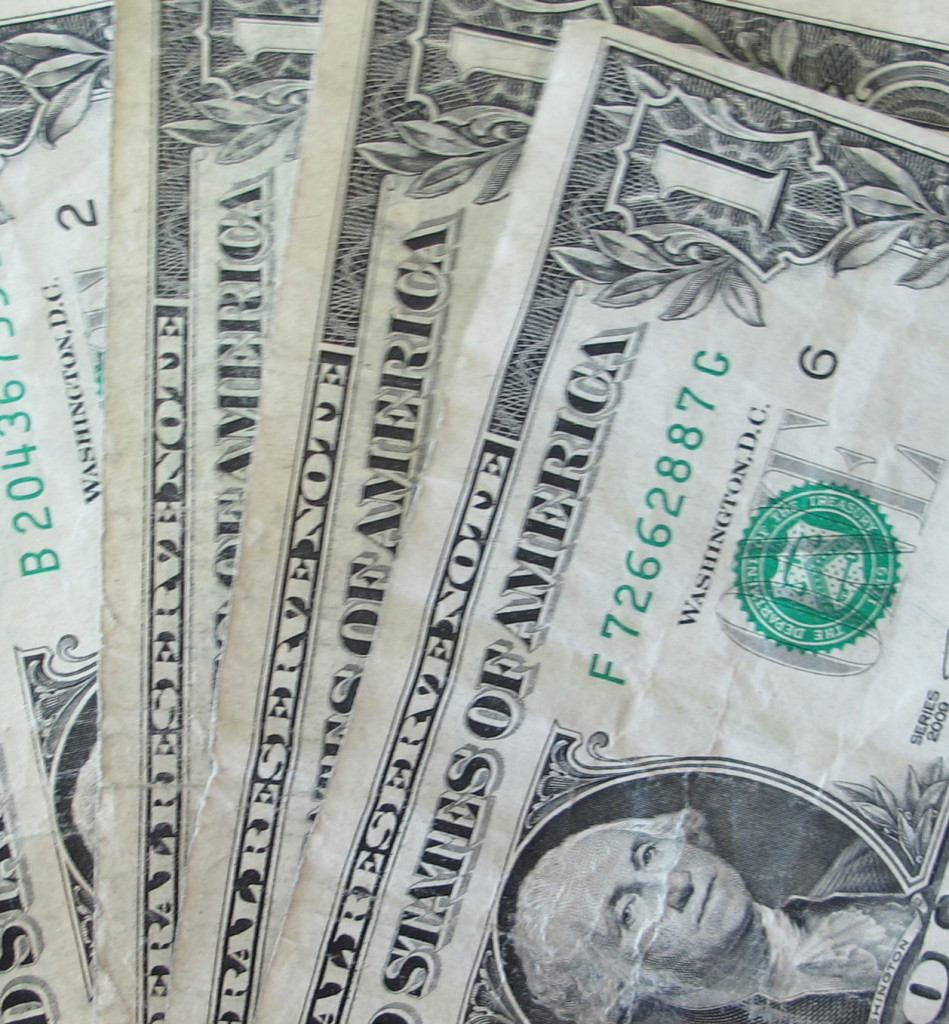
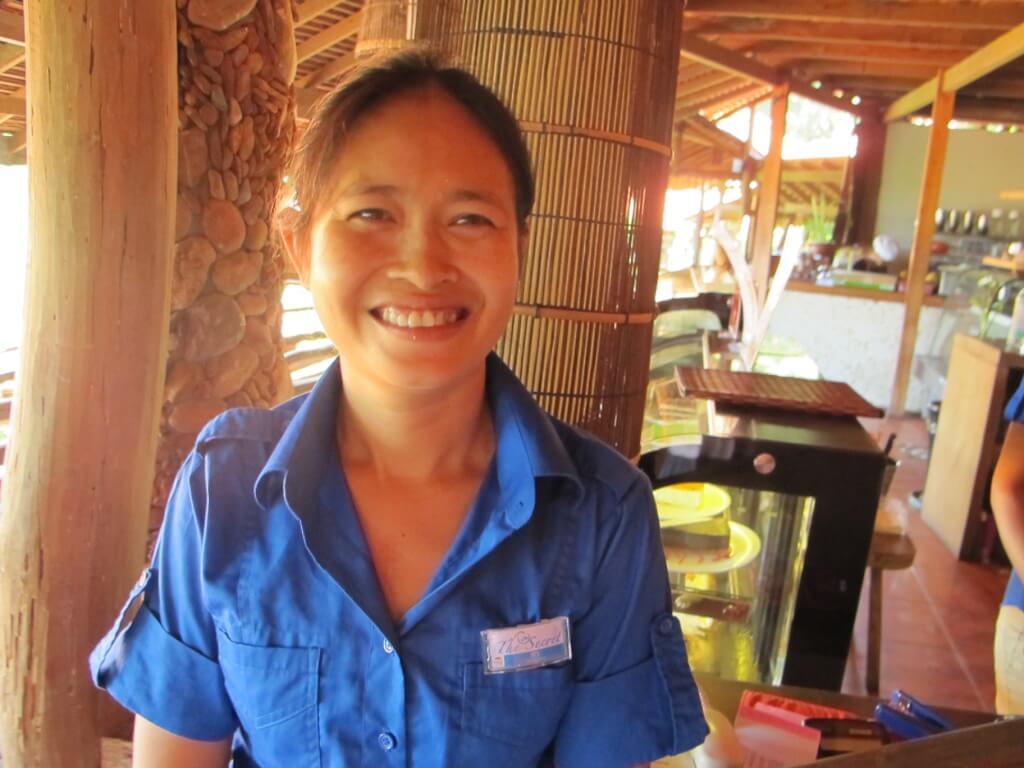
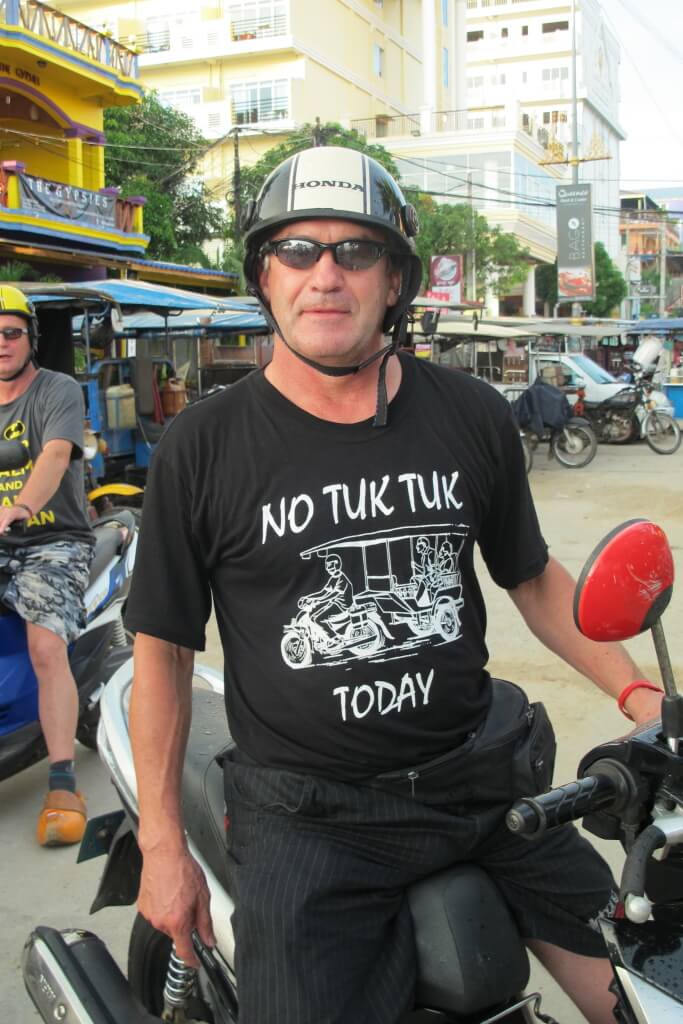

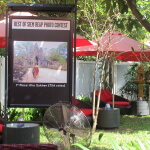
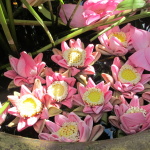
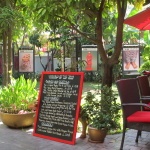
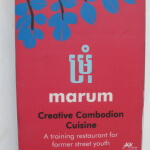

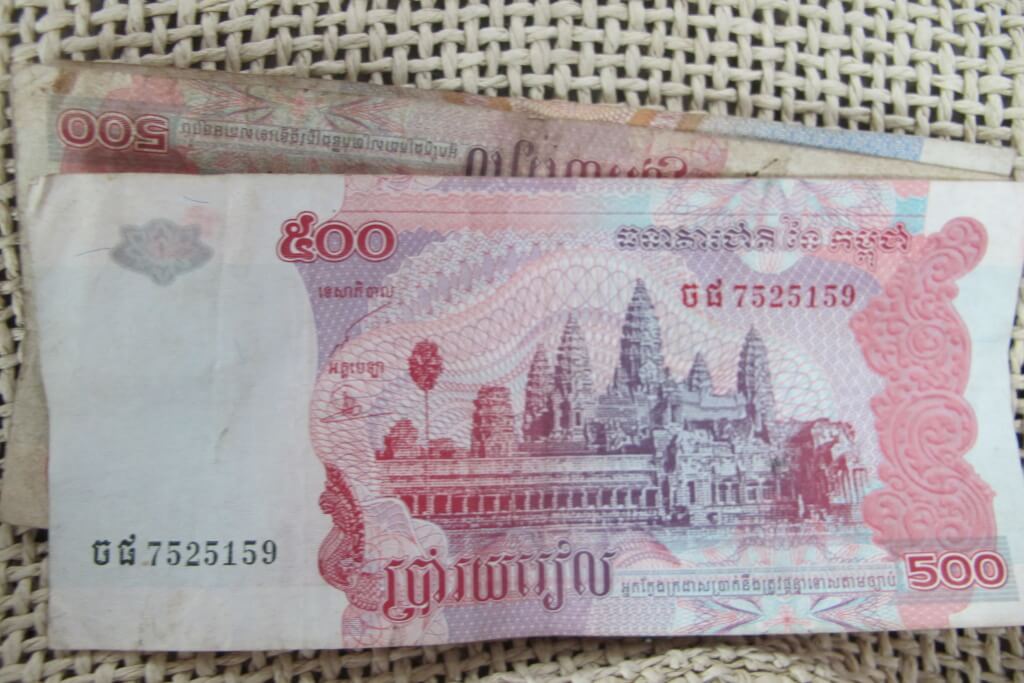
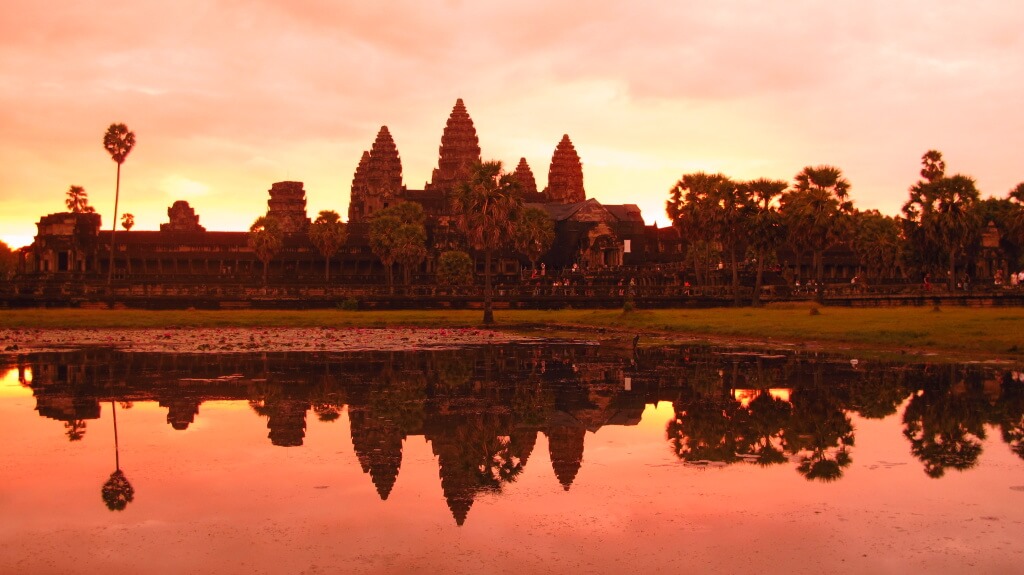
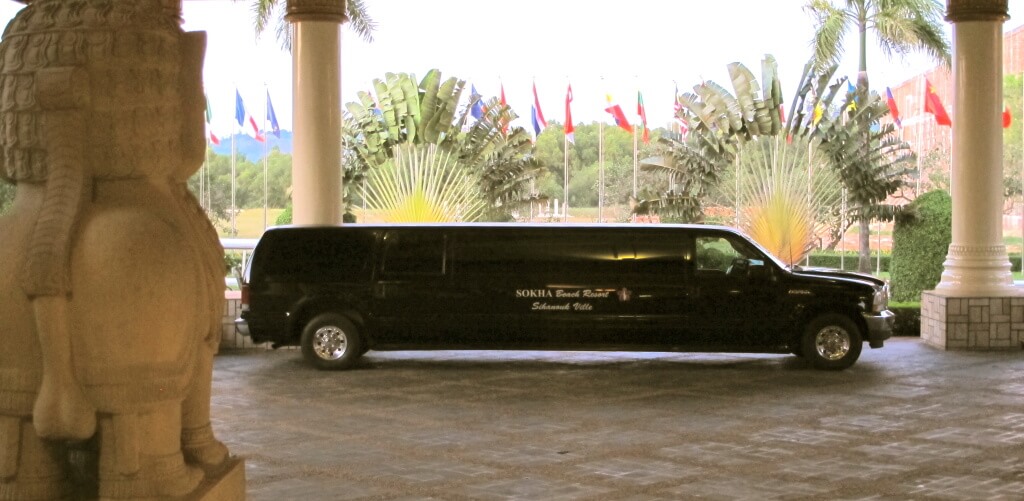
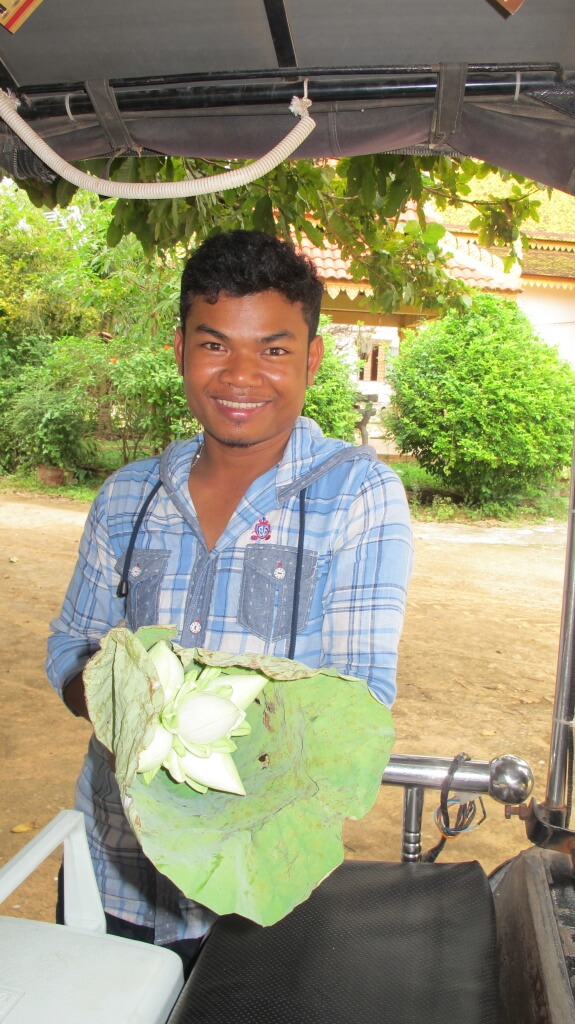

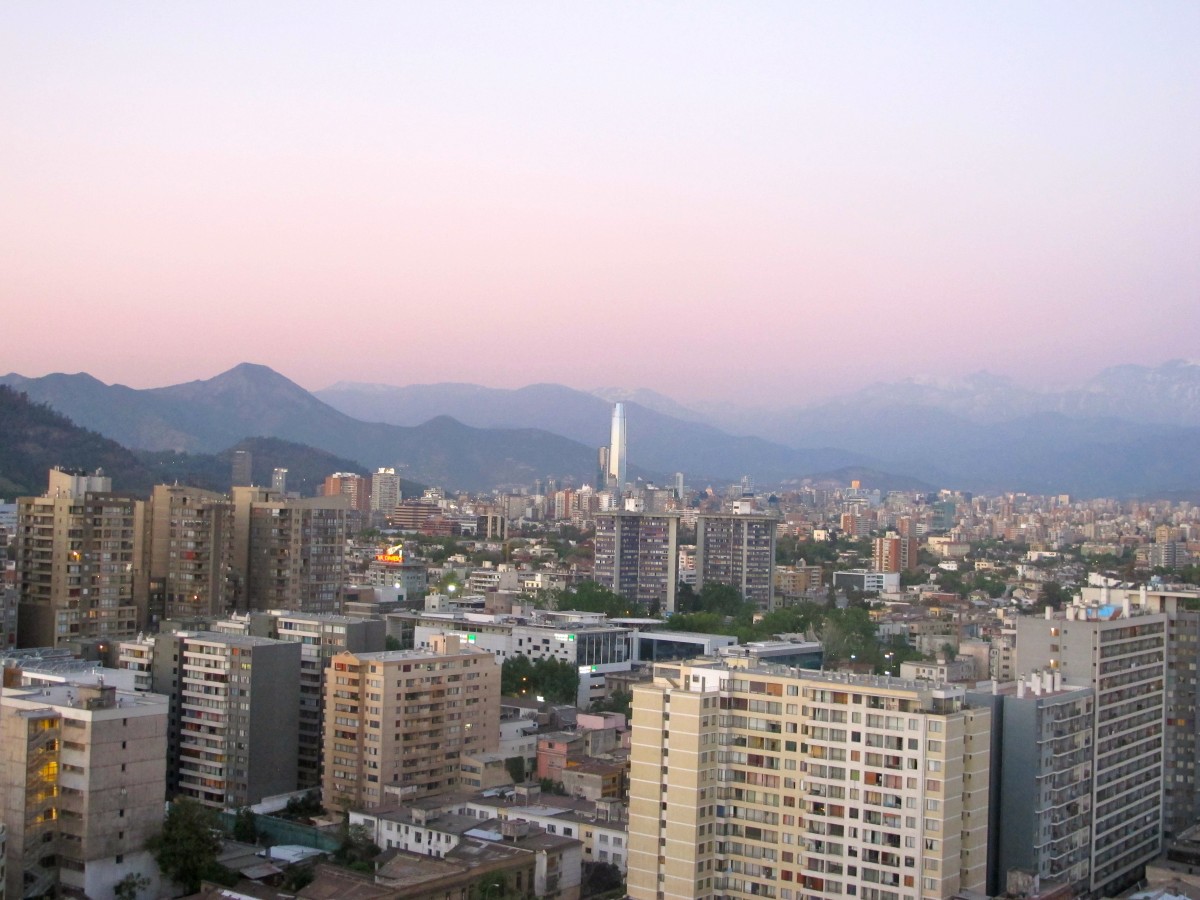
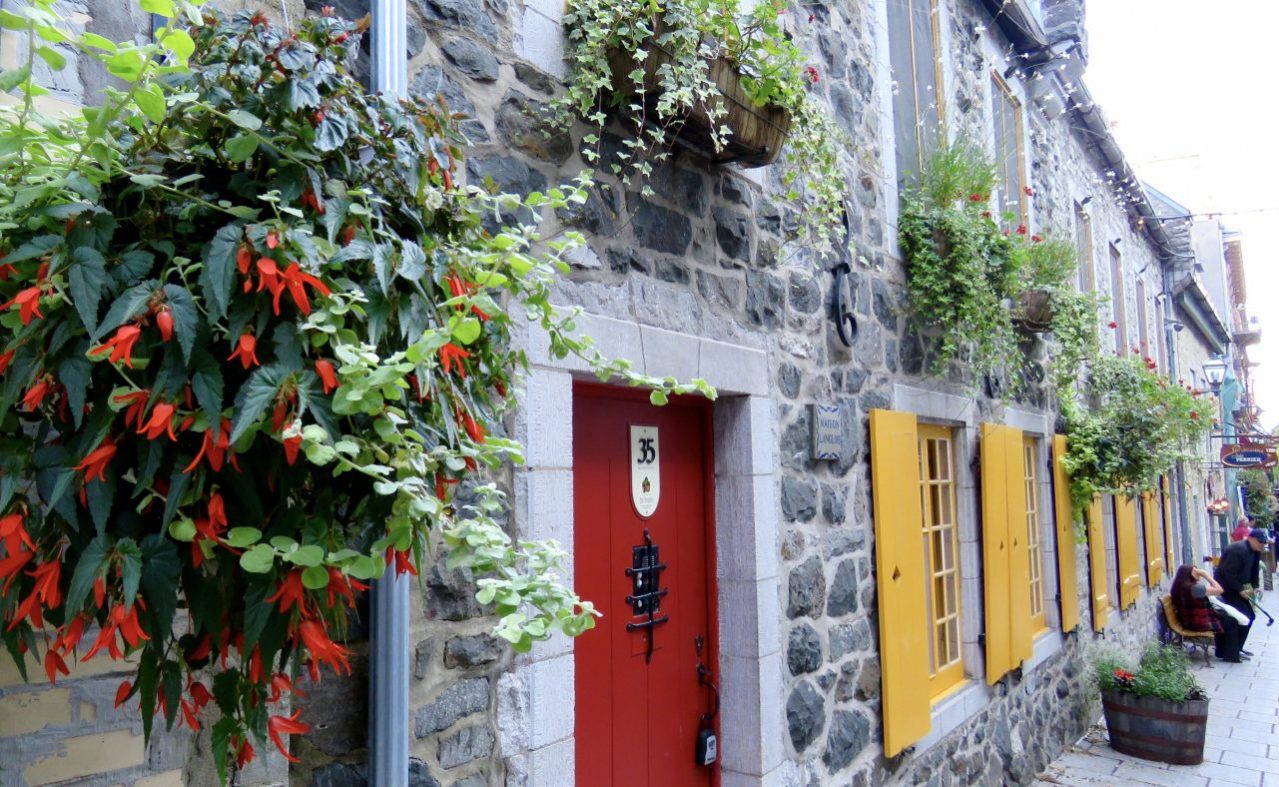




2 Comments
Sally Watson
July 21, 2017 at 6:07 amThanks Elke! Great to hear your feedback – especially coming from someone who is as familiar with Cambodia as you are! Much appreciated.
Elke Weeks
July 17, 2017 at 12:51 amFantastic article Sally! I lived in Cambodia for 8 or so years and agree with all of your tips. Great advice for travelers 🙂